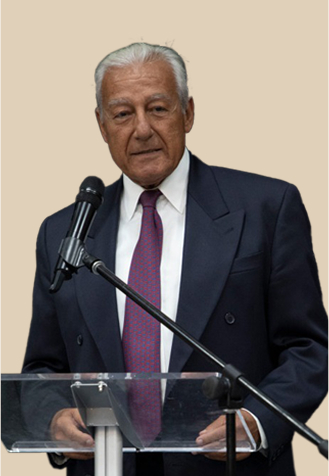ADC to court: the Israeli flag is a political symbol, not a religious one
FOR IMMEDIATE RELEASE
October 15, 2025
[email protected]
Washington, D.C. | The American-Arab Anti-Discrimination Committee (ADC) and co-counsel filed a reply in support of a motion to reconsider the preliminary injunction in Kimmara Sumrall v. Janine Ali (No. 1:25-cv-02277, D.D.C.), urging the court not to conflate protected political expression with discrimination.
The case stems from a November 13, 2024 confrontation inside the Dirksen Senate Office Building during dueling demonstrations over the genocide in Palestine. In the new filing, Ms. Ali asks the court to correct legal errors in its August 4, 2025 Memorandum Order and to recognize that federal civil rights statutes cannot be stretched to apply to constitutionally protected political expression by individuals. The motion explains that, if by ignoring a criminal court judge’s acquittal of Ms. Ali and solely accepting Ms. Sumrall’s version of events, the federal court departed from governing legal standards. It also shows that the court’s preliminary injunction order rests on a core error: conflating criticism of the Israeli government with unlawful discrimination against Jewish individuals—an approach that invites a speech-policing regime the First Amendment forbids.
The reply further explains that the order erroneously equated criticism of the Israeli government with antisemitism, and treated a national flag as a religious symbol. The Israeli flag is a state emblem, and speech about it is political expression. Without evidence of discriminatory intent, such expression cannot be recast as racial discrimination under § 1981.
On the law, the filing emphasizes that most courts require a nexus to state action for “equal benefit” claims under § 1981 brought outside the contracts context; a private altercation at a protest does not, by itself, create a federal civil rights case. The reply also underscores that the record does not show Ms. Ali acted with racial animus toward Jews.
“Civil rights laws protect people for who they are. They do not punish dissent against what a government does or what its flag represents,” said Jenin Younes, ADC National Legal Director. “When a court turns a political symbol into a religious proxy, it chills debate and violates our constitutionally protected free speech. Our reply asks the court to correct that error, vacate the order, and reaffirm that political expression remains protected.”
The First Amendment protects core political expression about flags, as the Supreme Court held in Texas v. Johnson and United States v. Eichman. The brief highlights: “The alleged battery here does not remove the independent protected-speech aspect of attacking the Israeli flag. The Israeli flag today is a national symbol, representing a government that international organizations have found to be committing mass murder of civilians and violating international legal norms in preventing food from being imported to feed civilians. As such, it is subject to the same criticism directed at any other country accused of engaging in war crimes and genocide.”
Beyond the merits, the brief shows there is no cognizable irreparable harm, that the balance of harms and public interest favor Ms. Ali, and that the stay-away order is unprecedented in this context. The reply also points to a separate D.C. case, United States v. Mobley, in which a different defendant was acquitted after an allegation by the same plaintiff, as further context undermining claims of irreparable harm.
ADC unequivocally condemns all forms of bigotry. The issue before the court is whether political speech about a nation’s flag can be mislabeled as racial discrimination without evidence of discriminatory intent.
Recent Posts
Action Alerts

Your support means everything. Your gift protects rights, builds community, and fights hate. Let’s move forward together.
